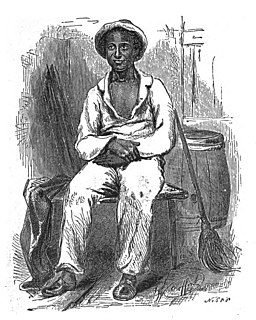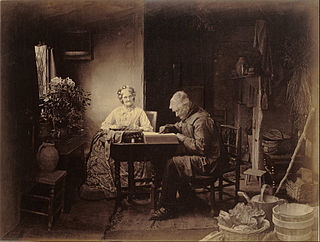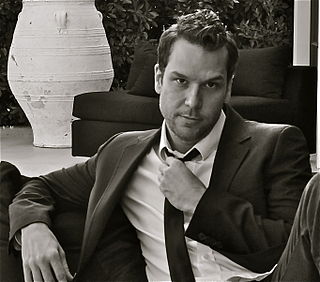A Quote by Solomon Northup
It is not the fault of the slaveholder that he is cruel, so much as it is the fault of the system under which he lives. He cannot withstand the influence of habit and associations that surround him. Taught from earliest childhood, by all that he sees and hears that the rod is for the slave's back, he will not be apt to change his opinions in maturer years.
Related Quotes
Be eager to lend a patient ear to the opinions of others and think long and hard whether whoever finds fault has reason or not to censure you. And if the answer is yes, correct the fault. If no, give the impression that you have not heard him, or if he is a man whom you respect, explain to him why he is mistaken.
That's how oppression works. Thousands of otherwise decent people are persuaded to go along with an unfair system because changing it seems like too much bother. The appropriate response when somebody demands a change in that unfair system is to listen, rather than turn away or yell, as a child might, that it's not your fault. Of course it isn't your fault. I'm sure you're lovely. That doesn't mean you don't have a responsibility to do something about it.
There are a lot of people who can't find housing, who worry about the future, and that insecurity and precarity in their own lives is being exploited by some politicians who are using it to divide us by saying, 'hey it's the fault of new Canadians, it's the fault of refugees, it's the fault of Muslims.'
It is not possible to be truly balanced in one's views of an abuser and an abused woman. As Dr. Judith Herman explains eloquently in her masterwork Trauma and Recovery, “neutrality” actually serves the interests of the perpetrator much more than those of the victim and so is not neutral. Although an abuser prefers to have you wholeheartedly on his side, he will settle contentedly for your decision to take a middle stance. To him, that means you see the couple's problems as partly her fault and partly his fault, which means it isn't abuse.
... any dodge, or trick, or conjuration of any kind is open to the photographer's use so that it belongs to his art and is not false to nature. If the dodges, tricks, etc., lead the photographer astray, so much the worse for him; if they do not assist him to represent nature, he is not fit to use them. It is not the fault of the dodges, it is the fault of the bungler.
There is one vice of which no man in the world is free; which every one in the world loathes when he sees it in someone else; and of which hardly any people, except Christians, ever imagine that they are guilty themselves. […] There is no fault which makes a man more unpopular, and no fault which we are more unconscious of in ourselves.[…]The vice I am talking of is Pride or Self-Conceit: and the virtue opposite to it, in Christian morals, is called Humility.
If we offer a prize, so to speak, to anyone who manages to bring a country under his physical control - namely, that they can then sell the country's resources and borrow in its name - then it's not surprising that generals or guerrilla movements will want to compete for this prize. But that the prize is there is really not the fault of the insiders. It is the fault of the dominant states and of the system of international law they maintain.



































